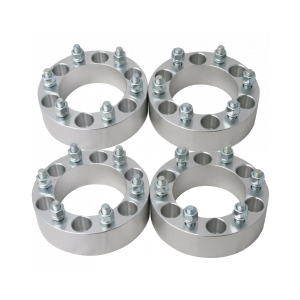Nov . 13, 2024 17:07 Back to list
oil seal for motor
Understanding Oil Seals for Motors Importance and Applications
Oil seals, also known as shaft seals or radial lip seals, play a critical role in the functioning of motors, ensuring efficiency and longevity through effective leakage prevention. These seals are designed to prevent the escape of lubricants while keeping contaminants from infiltrating the motor components. This article will explore the types of oil seals, their functions, benefits, and applications in various motor systems.
What is an Oil Seal?
An oil seal is a mechanical component that seals the interfaces between stationary and moving parts, particularly in rotating equipment like motors. Typically made from elastomers, rubber, or thermoplastics, oil seals have a specific design featuring a lip that maintains contact with the rotating shaft. This dynamic interface forms a barrier that retains lubricants within the motor housing while preventing external dirt, dust, and moisture from entering.
Types of Oil Seals
Oil seals come in various designs tailored to different applications, including
1. Radial Lip Seals The most common type, featuring a flexible lip that provides a dynamic seal against a rotating shaft. 2. Mechanical Seals Often used in high-pressure environments, these rely on the interaction between two surfaces to prevent leakage. 3. Flat Seals Primarily used for static applications, these seals play a vital role in ensuring a tight fit in assembly joints.
Each type is suited for specific application requirements, offering various benefits in terms of sealing integrity, temperature tolerance, and pressure handling.
Functions of Oil Seals in Motors
1. Leak Prevention One of the primary functions of oil seals is to prevent the loss of lubricants. Motors rely on oils to minimize friction and ensure smooth operation, and any leakage can lead to decreased performance and potential motor failure. 2. Contaminant Barrier Oil seals protect internal motor components from harmful contaminants. Dust, dirt, and moisture can lead to corrosion and wear, significantly reducing the lifespan of the motor.
oil seal for motor

3. Temperature Control By keeping lubricants intact, oil seals help maintain optimal operating temperatures. Overheating caused by insufficient lubrication can lead to catastrophic failures.
4. Vibration Reduction Seals also serve as a damper for vibrations, providing stability to rotating elements and reducing the risk of wear on motor components.
Benefits of Oil Seals
The use of oil seals in motors offers numerous advantages
- Increased Lifespan By minimizing wear and preventing leakage, oil seals significantly prolong the life of motors and other rotating machinery. - Cost Efficiency Although oil seals represent a small portion of the overall motor assembly, their failure can lead to expensive repairs. Using high-quality seals can reduce maintenance costs. - Enhanced Performance Proper sealing leads to improved operational efficiency. Motors can function at their designed power levels, delivering optimal performance. - Versatility Oil seals can be produced in various sizes and specifications, making them suitable for a wide range of applications, from small electric motors to large industrial equipment.
Applications of Oil Seals
Oil seals are utilized in various industries and applications, including
- Automotive In cars and trucks, oil seals prevent motor oil and transmission fluid leaks. - Industrial Equipment Heavy machinery and generators rely on oil seals for optimal performance and reliability. - Aerospace In aircraft engines, oil seals are essential for preventing fluid leakage at high altitudes and varying pressures. - Consumer Appliances Many household devices, such as washing machines and refrigerators, use oil seals to enhance efficiency and prevent leaks.
Conclusion
Oil seals are vital components in the effective operation of motors across numerous applications. Their ability to contain lubricants and block contaminants is crucial in extending the lifespan and enhancing the performance of motor-driven equipment. Understanding the different types and functions of oil seals can help manufacturers, engineers, and maintenance professionals ensure that their motors operate efficiently and reliably over time. Whether in automotive, industrial, or consumer settings, investing in quality oil seals is an investment in performance and longevity.
-
TCN Oil Seal Metal Ring Reinforcement for Heavy Machinery
NewsJul.25,2025
-
Rotary Lip Seal Spring-Loaded Design for High-Speed Applications
NewsJul.25,2025
-
Hydraulic Cylinder Seals Polyurethane Material for High-Impact Jobs
NewsJul.25,2025
-
High Pressure Oil Seal Polyurethane Coating Wear Resistance
NewsJul.25,2025
-
Dust Proof Seal Double Lip Design for Construction Equipment
NewsJul.25,2025
-
Hub Seal Polyurethane Wear Resistance in Agricultural Vehicles
NewsJul.25,2025
-
The Trans-formative Journey of Wheel Hub Oil Seals
NewsJun.06,2025
Products categories
















